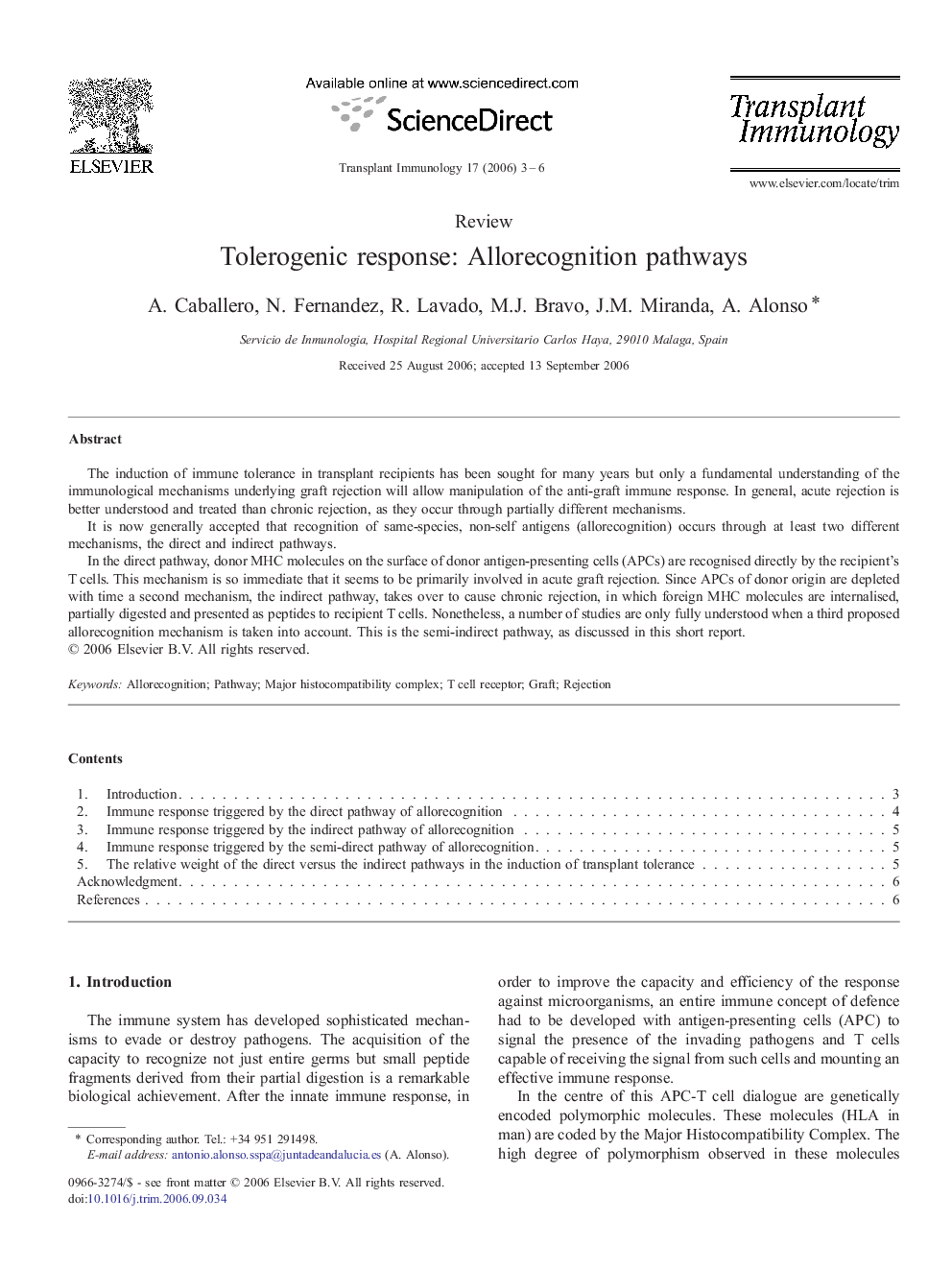| کد مقاله | کد نشریه | سال انتشار | مقاله انگلیسی | نسخه تمام متن |
|---|---|---|---|---|
| 3392645 | 1221232 | 2006 | 4 صفحه PDF | دانلود رایگان |

The induction of immune tolerance in transplant recipients has been sought for many years but only a fundamental understanding of the immunological mechanisms underlying graft rejection will allow manipulation of the anti-graft immune response. In general, acute rejection is better understood and treated than chronic rejection, as they occur through partially different mechanisms.It is now generally accepted that recognition of same-species, non-self antigens (allorecognition) occurs through at least two different mechanisms, the direct and indirect pathways.In the direct pathway, donor MHC molecules on the surface of donor antigen-presenting cells (APCs) are recognised directly by the recipient's T cells. This mechanism is so immediate that it seems to be primarily involved in acute graft rejection. Since APCs of donor origin are depleted with time a second mechanism, the indirect pathway, takes over to cause chronic rejection, in which foreign MHC molecules are internalised, partially digested and presented as peptides to recipient T cells. Nonetheless, a number of studies are only fully understood when a third proposed allorecognition mechanism is taken into account. This is the semi-indirect pathway, as discussed in this short report.
Journal: Transplant Immunology - Volume 17, Issue 1, December 2006, Pages 3–6